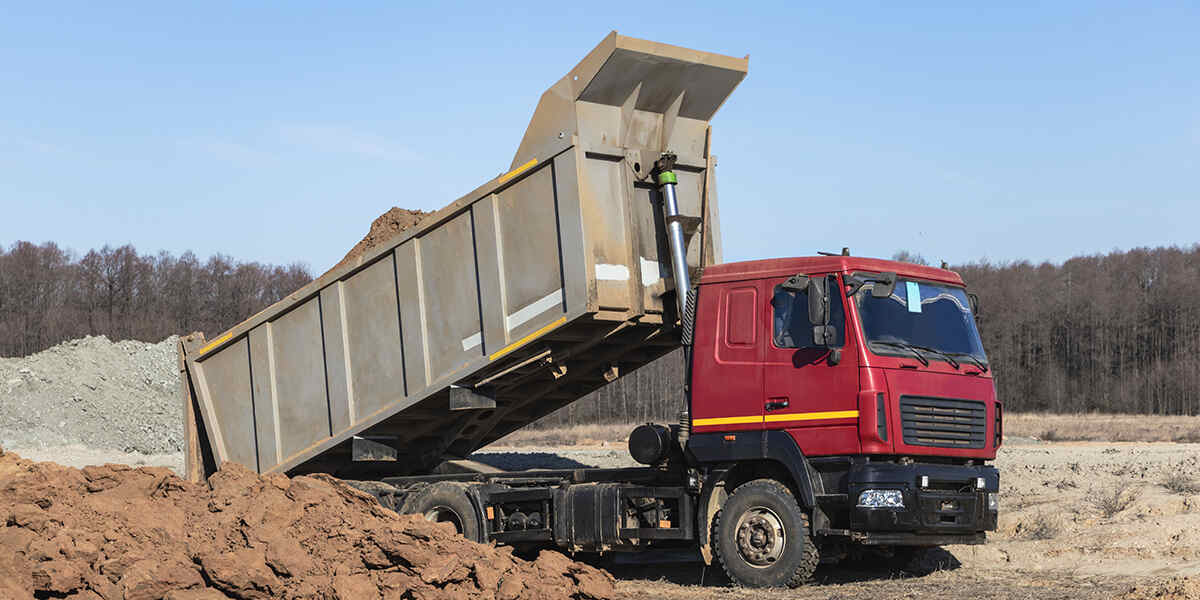Understanding the DOT Regulations for Dump Trucks

The Department of Transportation and Federal Motor Carrier Safety Administration set the current laws and regulations for heavy trucks. Abiding by an FMCSA compliance checklist ensures that you can operate a vehicle like a dump truck. But what are the current DOT regulations for dump trucks?
In this brief guide, we'll go over everything you need to know about the rules put in place by the DOT and FMCSA. Once you understand the regulations, you can file for a dump truck license with the help of FMCA Filings. Our experts streamline the process and answer any questions you have regarding FMCSA paperwork.
You Must Obtain a Commercial Driver's License
Operating a dump truck isn't the same as driving an SUV or pickup truck. Trucking companies need their drivers to carry a regular license as well as a commercial driver's license, which is available in three different classes. So, which one will you need to drive a dump truck?
A Class A CDL is the best option since it allows you to drive vehicles that fall under Class A, B, and C licenses. Drivers who hold a Class A CDL can operate vehicles with a gross combined weight rating of at least 26,000 pounds, including at least 10,000 pounds in towed cargo.
Class B covers vehicles weighing more than 26,000 pounds, but the towed cargo vehicle weighs less than 10,000 pounds.
Finally, a Class C license lets drivers operate vehicles with a combined weight rating of less than 26,000 pounds.
A Class A license provides the most flexibility, but it is also more expensive to obtain.
How To Earn Your Commercial Driver's License
According to DOT regulations for dump trucks, drivers can operate these vehicles once they obtain either a Class A or B CDL. You'll need to pass a series of driving and written tests before you can earn your license. Local vocational programs and community colleges will offer these courses that teach you how to operate heavy trucks and machinery.
The program and testing will vary between states since each one has different DOT requirements. In general, the training programs and tests will focus on the following:
- Navigating residential roads and public highways
- Hauling large loads
- Learning the vehicle systems
Once you have a commercial driver's license, you can work on meeting the remainder of DOT regulations for dump trucks.
Apply for a DOT Number
Any driver operating a dump truck will need to receive a DOT number from the Department of Transportation and its branch of the Federal Motor Carrier Safety Administration. Your truck's DOT number serves as an identifier that the FMCSA can monitor and use to enforce safety regulations.
The administration uses DOT numbers to track the safety of commercial carriers. If they need to intervene and address safety concerns with your company, officials will use your DOT number to get in touch with you. DOT regulations for dump trucks and other commercial vehicles clearly state that a DOT number is necessary when vehicles meet the following criteria:
- The vehicle has a gross combination weight rating of at least 10,000 pounds.
- The vehicle can carry more than eight paying passengers or at least 15 non-paying passengers.
- The vehicle must transport hazardous material.
You'll have to provide the appropriate documentation when applying for a DOT number, such as proof of insurance and information regarding your vehicle. Keep in mind that large dump trucks that measure at least 30 feet long, 8.5 feet wide, and 13.5 feet tall may need additional permits. Once you receive your DOT number, you must display it on your truck.
Pass Regular Inspections
The FMCSA wants to make sure you comply with all DOT regulations for dump trucks. Officials will conduct safety inspections at various points to guarantee trucking companies abide by industry standards. Scheduled annual inspections involve a qualified expert checking different parts of the vehicle, while some trucks must undergo inspection after an accident or other special circumstances.
As a driver, it's your responsibility to check essential systems before you take the truck anywhere. Doing a pre-trip inspection prevents disaster should one major part of the truck malfunction en route. You should check the safety and function of the brakes, lights, steering system, and more before hitting the road.
Simplify Your Trucking Needs With FMCA Filings
As long as you stay up-to-date on DOT regulations for dump trucks, your trucking company will have no issues with the FMCSA. Start off on the right foot by applying for the necessary permits and authorities with the help of FMCA Filings. We'll supply you with all the information you need on government regulations and make the application process simple with our easy-to-use online portal, where you can also check your DOT violations.
Get in touch with our experts by submitting our online contact form or by speaking with one of our live chat agents today.